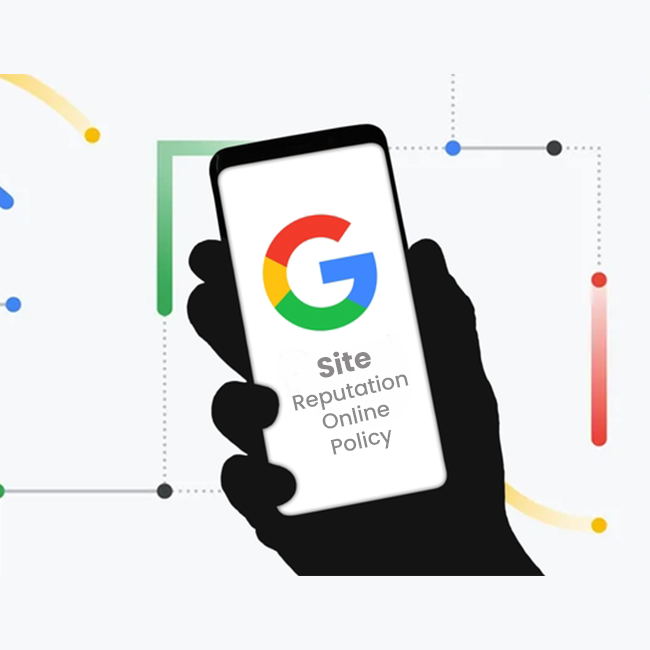The landscape of digital marketing is ever-evolving, and Google’s recent changes to its site reputation abuse policy have brought significant implications for marketing allies, particularly in the MENA region. As the digital ecosystem becomes more sophisticated, Google’s policies continue to adapt to ensure a fair and valuable user experience. Understanding these changes and their impact on the performance marketing industry is crucial for brands, content and news publishers, and coupon and deal platforms. The MENA region, known for its dynamic digital growth and innovative marketing strategies, is particularly affected by these policy changes. This underscores the need for regional marketers to stay ahead of the curve and adapt their practices to meet new standards.
Google’s Recent Spam Policy Change
In a bid to enhance the quality of search results and maintain the integrity of its search engine, Google has introduced a stringent policy against site reputation abuse. According to an excerpt from Google’s Webmaster’s site: “Site reputation abuse is when third-party pages are published with little or no first-party oversight or involvement, where the purpose is to manipulate search rankings by taking advantage of the first-party site’s ranking signals. Such third-party pages include sponsored, advertising, partner, or other third-party pages that are typically independent of a host site’s main purpose or produced without close oversight or involvement of the host site and provide little to no value to users.” This policy aims to curb manipulative practices that undermine the quality of search results, ensuring that users are directed to content that is genuinely valuable and relevant to their queries. By targeting these practices, Google reinforces its commitment to providing a more authentic and user-centric search experience.
This policy targets practices where third-party content, often unrelated to the host site’s core purpose, is published solely to exploit the host’s ranking signals, thus misleading search algorithms and users. This shift signifies Google’s commitment to curbing manipulative practices and promoting content that genuinely adds value to users. For the MENA region, where digital marketing is rapidly evolving, this policy change highlights the need for marketers to prioritize transparency and quality in their content strategies. The policy also serves as a wake-up call for marketers to reassess their partnerships and ensure that all third-party content aligns with their site’s primary objectives.
Impact on the Performance Marketing Industry
The introduction of this policy has far-reaching implications for the performance marketing industry, especially in the MENA region, where digital marketing strategies are rapidly evolving. Here’s how different segments are affected:
Brands
Enhanced Focus on Quality: Brands must now prioritize the quality and relevance of their content, ensuring it aligns closely with their primary business objectives and user expectations. This means investing more in content creation and oversight to ensure that all published material is of the highest quality and genuinely beneficial to the target audience.
Increased Scrutiny: There will be greater scrutiny on the partnerships and third-party content associated with brands, requiring more rigorous oversight and involvement. Brands will need to implement stricter vetting processes for their partners and third-party contributors to ensure compliance with Google’s new standards.
Trust Building: Brands that adhere to these guidelines can build ber trust with their audience, as their content will be perceived as more authentic and valuable. This trust can translate into higher engagement rates and better customer loyalty, as users are more likely to return to brands that they perceive as honest and trustworthy.
Reputation Management: Maintaining a b online reputation will become even more critical, as Google’s policy emphasizes the importance of quality content. Brands will need to actively manage their online presence, addressing any negative content or reviews promptly and effectively.
Content Strategy Overhaul: Brands may need to overhaul their content strategies to focus more on delivering value and less on search engine manipulation. This could involve investing in content that educates, informs, and entertains the audience, rather than just driving traffic to the site.
Compliance Monitoring: Ongoing monitoring and compliance checks will be necessary to ensure that all content, including third-party contributions, adheres to Google’s guidelines. Brands will need to establish internal protocols and possibly hire compliance officers to oversee this process.
Enhanced User Experience: By focusing on high-quality, relevant content, brands can enhance the overall user experience on their websites. This can lead to longer visit durations, lower bounce rates, and higher conversion rates, ultimately driving better business outcomes.
Long-term Strategy: Adapting to these changes will require brands to think long-term and develop sustainable content strategies that align with Google’s vision of a quality-driven internet. This may involve continuous learning and adaptation as Google’s policies evolve over time.
Content & News Publishers
Content Relevance: Publishers need to ensure that any third-party content is highly relevant and adds real value to their audience, moving away from purely revenue-driven content strategies. This means conducting thorough content audits and removing or improving any content that does not meet these standards.
Editorial Integrity: Maintaining editorial control over all published content becomes crucial, as lax oversight can lead to penalties from Google. Publishers will need to establish clear editorial guidelines and ensure that all contributors adhere to them strictly.
Monetization Strategies: Publishers will need to explore more integrated and user-focused monetization strategies that do not compromise on content quality. This could involve developing premium content offerings, subscription models, or other monetization methods that provide real value to the audience.
Audience Trust: Building and maintaining trust with the audience will be essential. Publishers who consistently deliver high-quality, relevant content will be more likely to retain their audience and attract new readers. This trust can lead to higher engagement and loyalty, which are critical for long-term success.
SEO Optimization: Adhering to Google’s guidelines will require publishers to optimize their content for SEO without resorting to manipulative tactics. This involves using ethical SEO practices that enhance the visibility of valuable content without compromising its quality.
Transparency in Partnerships: Publishers will need to be transparent about their partnerships and the nature of their third-party content. This can involve clear disclosures and communication about sponsored content and partnerships to build trust with the audience.
Diversified Revenue Streams: Developing diversified revenue streams will be important to mitigate the impact of any potential penalties from Google. This could include exploring new advertising models, affiliate marketing, or other revenue-generating activities that align with Google’s guidelines.
Community Engagement: Engaging with the community and building a loyal readership base will be more important than ever. Publishers who foster b relationships with their audience will be better positioned to succeed in this new landscape.
Also read: Performance Marketing Strategies for Enhanced Customer Lifetime Value
Coupon and Deal Platforms
Quality Over Quantity: These platforms will need to focus on curating high-quality, relevant deals and offers that align with user interests rather than flooding their sites with numerous low-value deals. This shift will require a more selective approach to deal curation, ensuring that every offer provides real value to users.
Transparency and Trust: Clear and transparent practices will be essential to build trust with both users and search engines. Platforms will need to clearly disclose the nature of their deals and partnerships, providing users with the information they need to make informed decisions.
User Engagement: Engaging users with valuable, well-curated content will become a priority, driving higher engagement and loyalty. This involves creating engaging and interactive content that keeps users coming back for more, such as personalized deal recommendations or exclusive offers.
Enhanced User Experience: Improving the overall user experience on the platform will be crucial. This can include streamlining the user interface, making it easier for users to find relevant deals, and providing a seamless browsing experience.
Partnership Quality: Establishing high-quality partnerships with reputable brands and retailers will be important. This can involve vetting potential partners to ensure that their deals and offers align with the platform’s standards and provide real value to users.
SEO Compliance: Adhering to ethical SEO practices will be essential to maintain visibility in search engine results. This involves optimizing content for search engines without resorting to manipulative tactics that could lead to penalties from Google.
User Feedback: Actively seeking and incorporating user feedback will help platforms improve their offerings and address any issues promptly. This can involve regular surveys, user reviews, and other feedback mechanisms to ensure that the platform meets user needs.
Market Adaptation: Adapting to market trends and user preferences will be crucial for long-term success. Platforms will need to stay ahead of industry trends and continuously innovate to provide users with the best possible experience.
Tips on How to Overcome These Challenges
Navigating the new landscape requires strategic adjustments and proactive measures. Here are some tips to overcome these challenges:
Conduct Regular Audits: Regularly audit your website and third-party content to ensure compliance with Google’s policies. Remove or improve any content that does not meet quality standards. This proactive approach can help identify potential issues before they lead to penalties.
Strengthen Oversight: Increase oversight on third-party contributions. Ensure all content aligns with your site’s core purpose and provides real value to users. Implementing stricter editorial controls and content review processes can help maintain high standards.
Focus on User Experience: Prioritize user experience by creating content that is relevant, engaging, and valuable. Use data and feedback to continually refine your content strategy. Enhancing the user experience can lead to higher engagement and better search rankings.
Build Authentic Partnerships: Collaborate with partners who share your commitment to quality and user value. Transparent and authentic partnerships will withstand scrutiny and drive long-term success. Vetting partners and establishing clear guidelines can help maintain high standards.
Enhance Transparency: Be transparent with your audience about sponsored content and partnerships. Clear disclosures and honest communication can build trust and credibility. Transparency can also help avoid penalties from Google.
Leverage Data and Analytics: Use advanced analytics to understand user behavior and preferences. Tailor your content and advertising strategies based on these insights to enhance relevance and engagement. Data-driven strategies can lead to better results and compliance with Google’s guidelines.
Innovate in Monetization: Explore innovative monetization strategies that do not compromise content quality. This might include premium content subscriptions, native advertising, or exclusive deals that align with your audience’s interests. Diversifying revenue streams can help mitigate the impact of any potential penalties.
Invest in Training: Keep your marketing and editorial teams updated on the latest Google policies and best practices. Regular training can ensure everyone is aligned and working towards common goals. Continuous learning and adaptation are key to staying compliant and competitive.
Engage with Your Audience: Foster b relationships with your audience by engaging with them through various channels. Respond to comments, conduct surveys, and create interactive content to build a loyal community. Audience engagement can lead to higher retention and better feedback for improvement.
Adapt to Market Trends: Stay ahead of industry trends and continuously innovate to meet user needs and preferences. This can involve experimenting with new content formats, exploring emerging platforms, and staying informed about changes in user behavior.
Also read: The Transformative Impact of Data Activation on Performance Marketing in 2024
Google’s new site reputation abuse policy marks a significant shift towards higher standards of content quality and relevance. For marketing allies in the MENA region, this presents both challenges and opportunities. By understanding the implications of these changes and adopting proactive strategies, brands, publishers, and deal platforms can not only comply with Google’s guidelines but also enhance their credibility and trust with their audiences. This shift towards quality and user-centric content is a step forward in fostering a more authentic and valuable digital ecosystem. Embracing these changes can lead to long-term success and a more positive impact on the digital marketing landscape in the MENA region.









